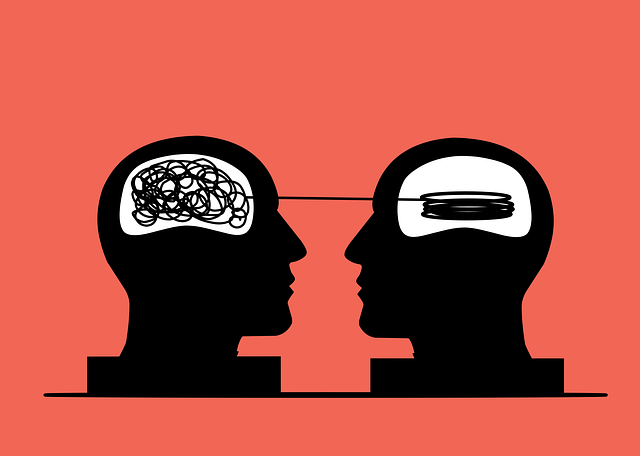Interpersonal therapy (IPT) is an effective depression treatment program focusing on improving relationships, communication, and social connections. By addressing issues like conflict, loss, and isolation, IPT equips individuals with skills to enhance empathy, resolve conflicts, and build stronger support networks. This approach ultimately fosters a sense of belonging, boosts self-esteem, and enhances overall well-being, making it a powerful tool in managing depression.
Depression can often be deeply intertwined with our relationships and social interactions. Interpersonal Therapy (IPT) offers a unique and effective approach to treating depression by focusing on these connections. This article explores IPT as a powerful depression treatment program, delving into its core principles, the role of relationships, and how it addresses interpersonal issues. We’ll guide you through personalized treatments, integration with other therapies, and real-life success stories, providing valuable insights for those seeking effective depression treatment programs.
Understanding Interpersonal Therapy for Depression: An Overview

Interpersonal therapy (IPT) is a highly effective depression treatment program that focuses on the connections and relationships in your life. This therapeutic approach recognizes that our interactions with others can significantly impact our mental health, particularly when it comes to depression. IPT aims to help individuals identify and resolve interpersonal issues that may be contributing to their depressive symptoms.
By targeting these problems, IPT encourages healthier communication patterns and strengthens social support networks. The therapy explores various aspects, such as conflict resolution, grief and loss, and social isolation, to help clients understand how these factors influence their mood and behavior. Through this process, individuals gain valuable skills to navigate relationships more effectively, fostering a sense of belonging and improving overall well-being.
The Role of Relationships in Treating Depression

Depression often stems from underlying issues in one’s relationships and social connections, making interpersonal therapy a powerful tool in its treatment. This therapeutic approach focuses on improving communication skills, fostering healthier interactions, and enhancing empathy between individuals. By examining their significant relationships, individuals can gain insights into their depressive symptoms and learn to manage them more effectively.
Interpersonal therapy for depression involves creating a safe space to explore and express emotions, resolve conflicts, and build stronger bonds. It empowers individuals to navigate social situations with increased confidence, improve their self-esteem, and develop meaningful relationships. Through this process, participants in depression treatment programs can break free from negative patterns, leading to improved overall well-being and a more optimistic outlook on life.
Identifying Interpersonal Issues Contributing to Depression

Depression often stems from complex interpersonal issues that can be challenging to recognize and address. For individuals seeking effective depression treatment programs, understanding the social dynamics contributing to their condition is crucial. Many factors within relationships can trigger or exacerbate symptoms, such as conflict, loneliness, or a lack of social support.
Through interpersonal therapy, individuals learn to identify and navigate these challenges. This therapeutic approach focuses on improving communication, resolving conflicts, and building healthier connections. By exploring personal interactions and patterns, those in depression treatment programs can gain valuable insights into their role in relationships and develop strategies to foster more positive exchanges, ultimately contributing to improved mental well-being.
Core Principles and Techniques of Interpersonal Therapy

Interpersonal therapy (IPT) for depression focuses on understanding and improving relationships as a key component of mental health care. The core principles emphasize the significant impact that social connections and interactions have on an individual’s emotional well-being. IPT techniques target specific issues, such as conflict resolution, assertiveness training, and social skills development, to help individuals navigate their interpersonal world more effectively.
This therapeutic approach believes that depression often arises from difficulties in personal relationships, including problems with communication, lack of social support, or unresolved conflicts. By addressing these issues directly, IPT aims to enhance an individual’s ability to connect with others, resolve disagreements, and build a stronger support network. As a result, individuals learn to manage their symptoms more effectively, leading to improved overall mental health and quality of life, particularly within the context of depression treatment programs.
Personalized Treatment Plans in Interpersonal Therapy

Interpersonal therapy (IPT) offers a unique approach to treating depression by focusing on an individual’s relationships and social environment. One of its key strengths is the development of personalized treatment plans. IPT therapists work collaboratively with clients to understand their specific interpersonal issues, such as conflict resolution, social skills, or loneliness. This tailored process involves identifying targets for change, setting achievable goals, and designing strategies to address these challenges.
Through this individualized approach, depression treatment programs in IPT can be adapted to suit diverse needs. Whether it’s improving communication with family members, navigating workplace dynamics, or fostering new social connections, the therapy is customized to enhance the patient’s ability to manage their symptoms effectively within their personal context.
Integrating Other Therapies with Interpersonal Approaches

In many cases, interpersonal therapy for depression is most effective when combined with other therapeutic approaches tailored to the individual’s specific needs. This integration allows for a comprehensive treatment plan that addresses both the interpersonal and intrapersonal aspects of depression. For instance, cognitive behavioral therapy (CBT) can be seamlessly woven into interpersonal therapy, helping individuals challenge negative thought patterns and beliefs that may contribute to their depressive episodes.
Additionally, mindfulness-based interventions or stress reduction techniques can complement interpersonal approaches by teaching individuals coping strategies for managing distressing emotions and improving overall well-being. Depression treatment programs that incorporate these diverse therapies have been shown to yield better outcomes, offering a holistic approach that supports personal growth and recovery while fostering healthier relationships.
Benefits, Challenges, and Success Stories of IPT for Depression

Interpersonal therapy (IPT) is a highly effective depression treatment program that focuses on improving relationships and social functioning as key components of recovery. One of its primary benefits is its ability to help individuals identify and change unhelpful patterns in their interactions with others, fostering better communication and support systems. This can significantly reduce feelings of loneliness and isolation, which are often central to depressive episodes. IPT also encourages clients to develop assertiveness skills, enabling them to express their needs and boundaries more effectively.
Despite its advantages, IPT comes with challenges. It requires active participation from the individual, who must be willing to confront difficult interpersonal issues. Additionally, it may not be suitable for everyone; some individuals might prefer other therapeutic approaches that offer a more solitary focus. However, when tailored to each client’s needs, IPT has proven successful in treating depression. Many clients report improved relationships, increased self-esteem, and better overall mental well-being after completing the program. These success stories highlight the power of IPT in transforming lives and offering lasting relief from depressive symptoms.
Finding and Choosing an Interpersonal Therapist: Tips and Resources

When seeking interpersonal therapy for depression, finding the right therapist is a crucial step in your journey to recovery. Here are some tips to guide you:
Start by researching and asking for referrals from trusted sources. Many mental health professionals have networks they recommend. Check online directories or support groups dedicated to mental well-being; these platforms often list therapists specializing in various modalities, including interpersonal therapy. Ensure the therapist has experience treating depression and a good track record. You can also inquire with your primary care physician or local healthcare providers who might direct you to qualified professionals. Verifying their qualifications and reading client testimonials will help you make an informed choice.
